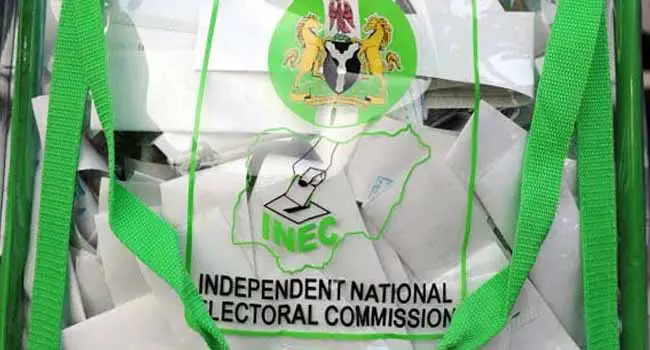When the Independent National Electoral Commission (INEC) redeployed the ICT Director, Engineer Chidi Nwafor to Enugu State in August 2022 it raised many concerns about INEC’s intentions and it appears that those fears were justified.
Interestingly, Femi Odubiyi of the ICT Department was left behind, a former Lagos State Commissioner of Science & Technology who was dismissed by Governor Ambode.
The link between all Lagos State appointees and Bola Tinubu, the Presidential candidate of APC, is well known.
The role of the ICT department in an electoral commission is critical to ensuring the integrity and credibility of any election.
This department is responsible for designing, implementing, and maintaining the technology infrastructure that supports the electoral process, including the Bimodal Voter Accreditation System (BVAS) machines, voter registration databases, and tabulation systems.
As such, the staff must be impartial and free from any political bias or affiliation.
It is a fundamental principle of democracy that the electoral process should be transparent and unbiased and the commission independent and neutral.
Any perception or evidence of political interference in the election process can undermine the trust and confidence of the public in the electoral system, which is damaging to its reputation and effectiveness.
In this case, Femi Odubiyi’s link to the APC Presidential candidate is a clear conflict of interest.
Being in such a sensitive position, he may use his position to favor his party by manipulating the technology or providing access to confidential information that can be used to gain an unfair advantage. Even if he is committed to maintaining neutrality, the mere perception of bias can erode the public’s trust in the integrity of the electoral process.
The potential for abuse of such a situation is high, and the ICT staff, as key gatekeepers of this technology, must be beyond reproach to ensure the fairness of the electoral process.
Reports of network issues affecting the transmission of results and, in some cases, outright refusal or inability of the presiding officers across various polling units to upload the results immediately are giving the public cause for concern.
The technical hitches and challenges with the INEC Results Viewing Portal (IReV) despite the importance of IReV in reassuring the public of INEC’s transparency is very troubling.
The commission as it stands seems to be staffed with partisan officials, who may prioritize their party’s interests over the fairness and impartiality of the electoral process, leading to a biased administration of the election that can disenfranchise voters and undermine the election’s legitimacy.
When an electoral commission is seen to be biased, it can lead to a lack of confidence in the election results. This can cause social unrest and protests, all of which threaten the stability and security of a country.
It is essential that INEC urgently puts its house in order and salvages an already fast deteriorating situation.
Given the widespread incidents of compromised BVAS equipment, network failures and the suspicions that they could have been contrived, it is critical that INEC takes urgent steps to restore confidence in the electoral system and indeed confidence in democracy by immediately setting dates for rerun elections everywhere that these incidents have occurred.
It is also important to ensure that, as envisaged by the electoral act, the immediate uploading of results from Polling Units is guaranteed.
These are the only actions that will calm the increasingly restive population and repair the image and reputation of INEC.









